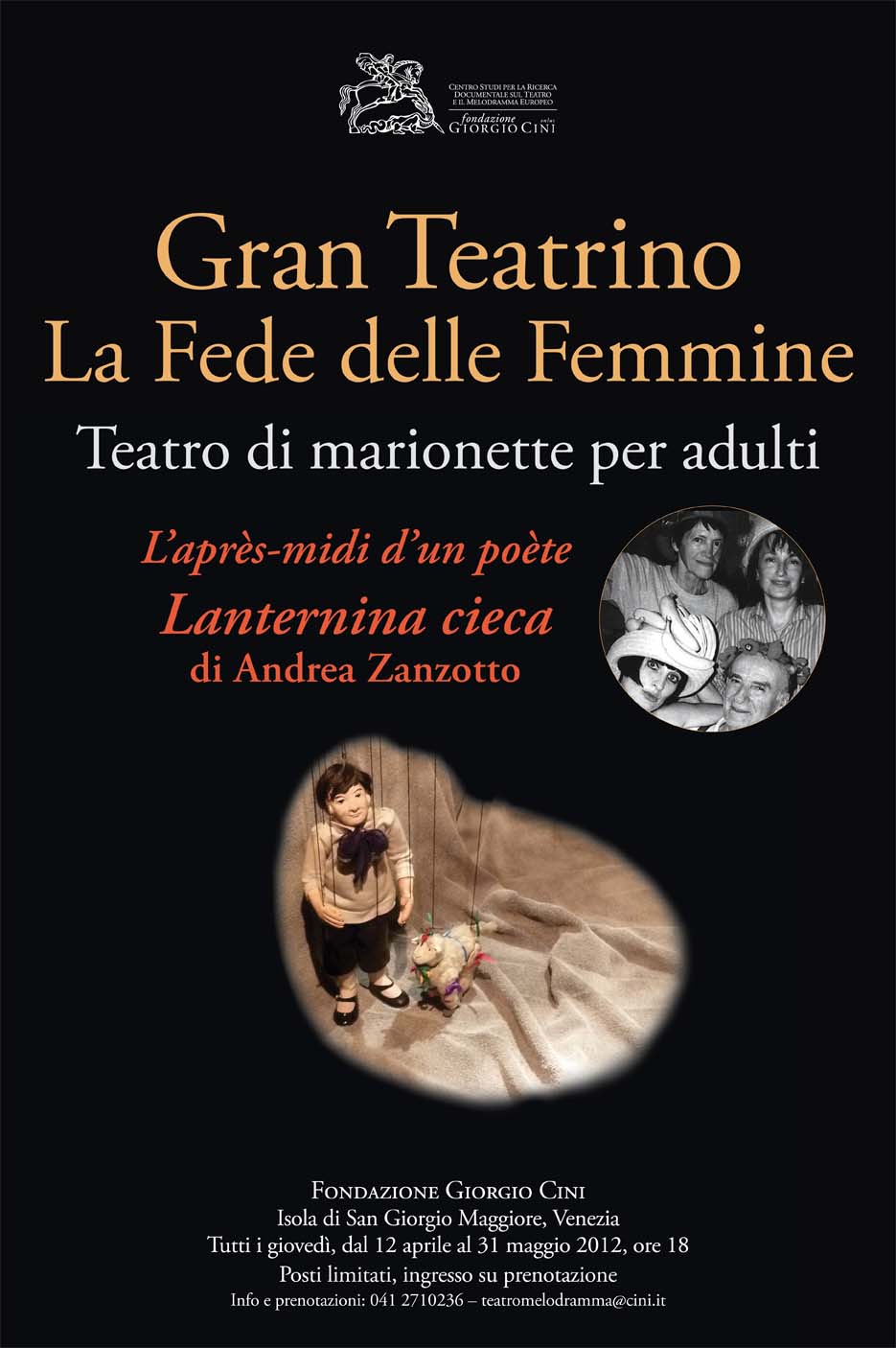
Adult Puppet Theatre

This visual-musical puppet show is an experiment in micro-theatre featuring the language of poetry. The narrative scheme is an elaboration of landscape motifs from Andrea Zanzotto’s verse, ever present in his early works, from Dietro il paesaggio (Behind the Landscape; 1940-1948) to Pasque (“Easters”, 1973). The base text, taken from Pasque, is the Lanternina cieca (“Small dark lantern”), presented in a recorded reading-recital by the poet himself.
The “music of the woods” that accompanies the performance is from Henry Purcell’s The Fairy Queen conducted by Benjamin Britten.
A show of music and marionettes for adults by Gran Teatrino La Fede delle Femmine
Every Thursday, from 12 April to 31 May 2012, 6.00 pm
Limited seating, booking required
Information and booking: 041 2710236 – teatromelodramma@cini
A GRAND SMALL THEATRE OF MARIONETTES by Andrea Zanzotto
But what on earth is a “Grand Small Theatre of Marionettes” like the one staged by the Fede delle Femmine group? An unfolding of cascading sharp-edged surprises with enchanted and ironic pauses, a mise-en-abîme and uncontrollable flow of multiverse virtualities – but the whole harshly material in contact with five (or more?) senses in the gestural rhythm of the puppets, “prepared” for work by hands trained to use more levers (perhaps even some imaginary) than the forty, etc., Japanese ones requiring decades of apprenticeship.
The first impact is already cosily embracing and lacerating, alluring and repulsing, as off it goes by means of chutes and steps, flashes of colour and butterfly-fluttering drapes, telescoped series of rooms or perspective allusions, fleamarket tangled threads and imbroglios, and sarcasms caught between tongue and cheek.
But what keeps everything tautly anxious, satisfies and embarrasses, unceasingly estranges and makes familiar is the texture of impromptus or comments or lacunas or crossovers, especially musical and linguistic ones that re-morph every element and levitate-plunge perceptions towards a sublime simultaneously facing heights and depths.
In short, it is the unmasking of a scherzo that makes everything settle in a smile.
So the world goes and so reality is a set of contradictions: and the marionettes know this better than anyone else, for they are extreme schemata, stubbornly connected elsewhere and in this case in the particular “grace”, the charis, that these Femmine possess and to which stage and audience gain access. Audience?
These encounters are actually celebrations of mysteries. Who knows. Some will enter the initiation, some will not, and some may. There, in the little grotto of the petite boîte. And nobody will remain exactly as they were before, if they have even only just become party to the aura of this experience as sly as its subtly thrilling, as real as it is hallucinatory.
